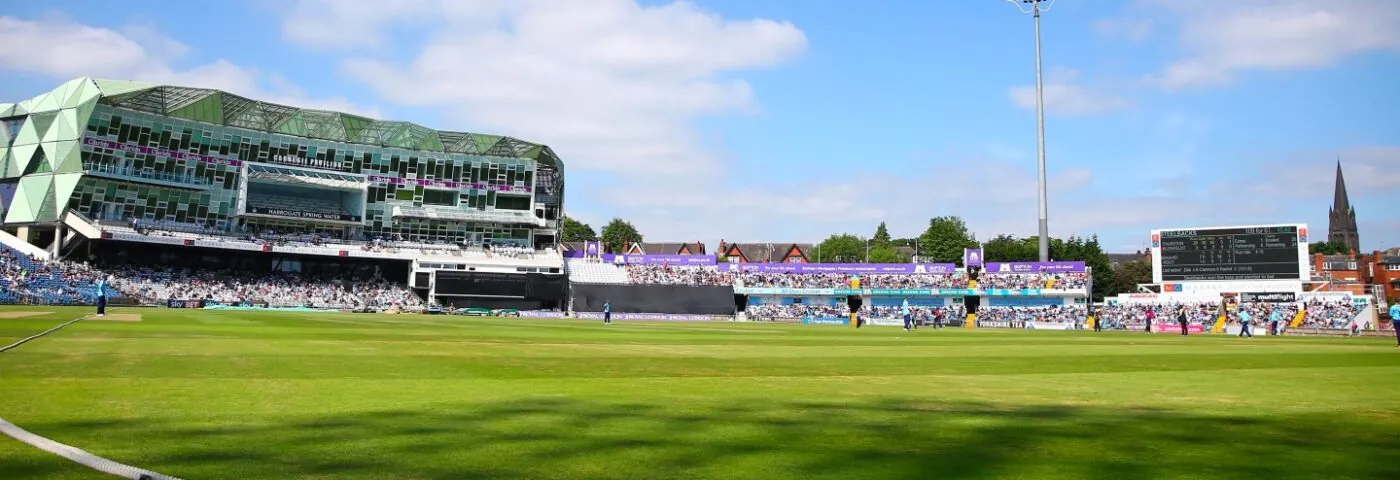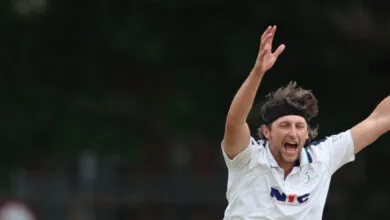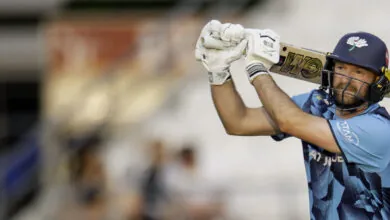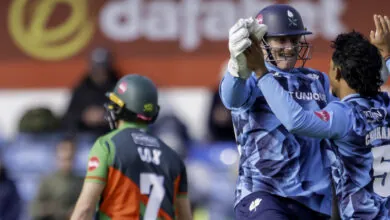For the first time Yorkshire had three players in the World Cup and two of them performed exceptionally well. Paul Dyson casts his eyes back over how Yorkshire players have fared in previous World Cups. The photo of Chris Old comes courtesy of Mick Pope.
The World Cup of 2019 was the 12th such tournament and a total of 11 Yorkshire players have been involved since 1975. Each of the first three World Cups – in 1975, 1979 and 1983 – took place in England and Yorkshire’s one representative in the first tournament was fast-medium bowler Chris Old. He played in all of England’s four games including an epic semi-final against Australia at Headingley in which Old took three for 29 to help reduce the visitors to 39 for six. Unfortunately Australia’s target was only 94 and they got home without losing another wicket. Old did have the satisfaction, however, of being England’s leading wicket-taker with seven victims – one more than Tony Greig. In England’s first game – against India – Old scored an unbeaten 51 from 30 balls to take his side to 334 for four in 60 overs – the first time a team had passed the 300 mark in an ODI. Old’s innings stood as the record for England’s fastest half-century in any ODI for 27 years.
Old also played in all of England’s games (five) in the 1979 tournament and took nine wickets, a total surpassed only by Mike Hendrick. Old’s best performance was an analysis of four for eight in ten overs against Canada who were bowled out for 45 and lost by eight wickets. He had the satisfaction of going one better than in the previous World Cup by being part of the England team which reached the final. That game was against the West Indies and Old’s dismissals of Desmond Haynes and Clive Lloyd helped reduce the holders to 99 for four. A Viv Richards-led recovery took them to 286 for nine. Geoff Boycott also played in this tournament but did little of note until the final itself. In sharing a first-wicket stand of 129 with skipper Mike Brearley, Boycott made a half-century, but the pair batted far too slowly. The Yorkshireman did not reach double figures until the 17th over and his 57 took up 105 balls. When the first wicket fell (Brearley for 64 from 130 balls) England’s target was 158 from 22 overs and it proved way beyond them.




